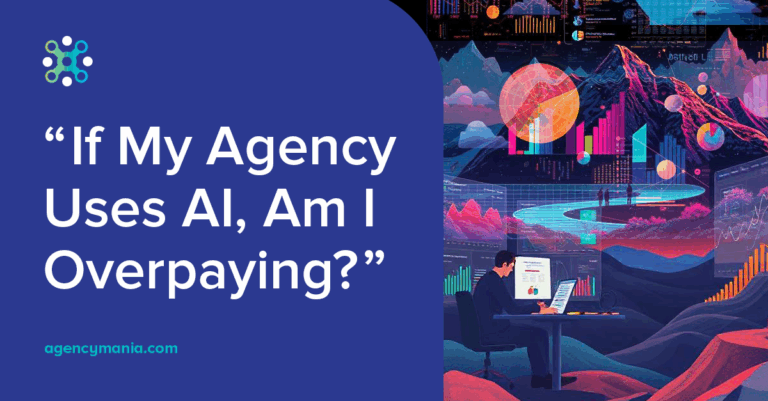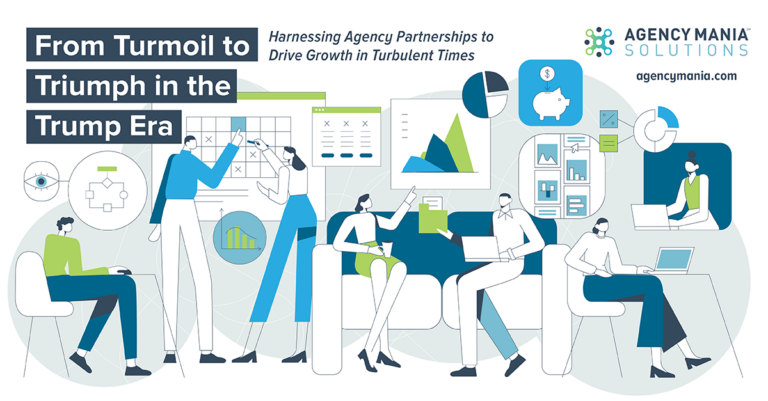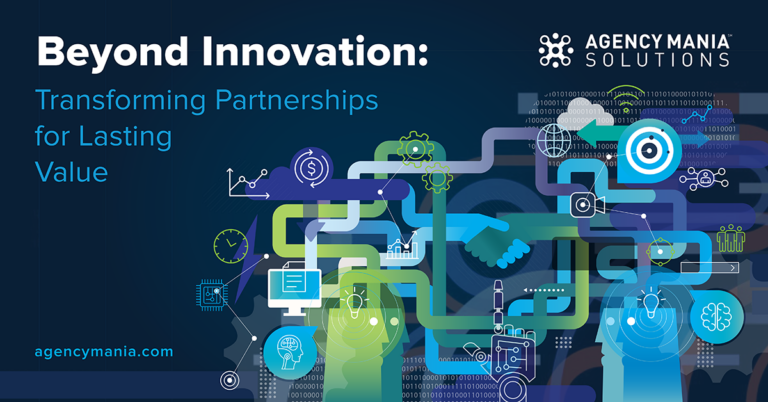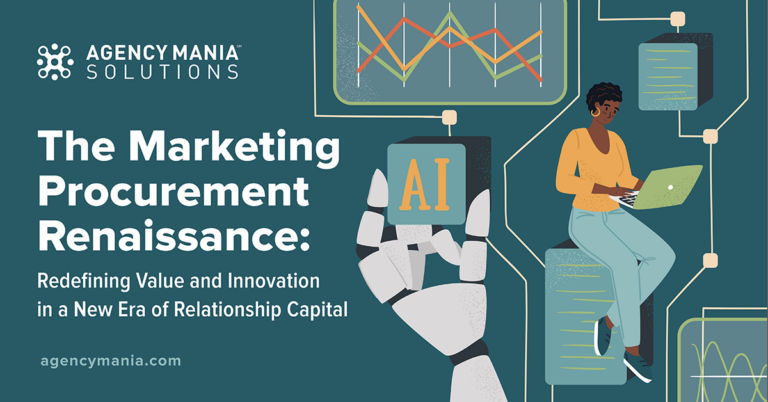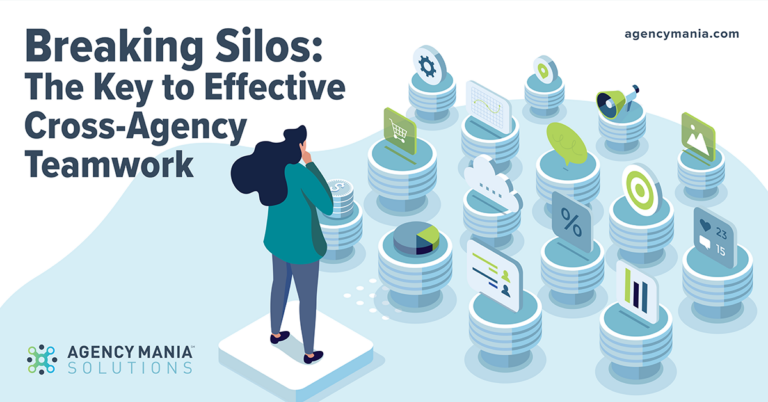Download a print-friendly version here
“L’amour est-il mort?” (“Is Love Dead?”)
French writer, poet, aristocrat, journalist and pioneering aviator Antoine de St-Exupéry once said: “Aimer, ce n’est pas se regarder l’un l’autre, c’est regarder ensemble dans la mêm
direction.” (Translation: “Love doesn’t mean gazing at each other, but looking, together, in the same direction.”) Applied to the world of Madison Avenue and Fortune 200 advertisers, the saying has a similar meaning: clients and agencies must align on expectations and a shared purpose that will translate into mutually beneficial partnerships that produce great work.
Love is essential but it requires a lot more for these relationships to be highly collaborative and productive.
David Ogilvy was known to say: “Clients get the advertising they deserve.” Clients play a very essential role in making this possible. Based on the hundreds of relationship and performance evaluations we conducted, a few client behaviors surface as best practices that set apart highly successful relationship from failed ones. Here are the top client actions that yield better outcomes:
#1: They establish clear expectations at the outset of the relationship
The client and the agency must have the same understanding of the mutual expectations placed on the relationship from the beginning. Too often, people jump into the work with preset notions, unstated concerns or even hidden agendas. It’s not long until these misalignments surface and deteriorate the relationship. Setting clear expectations for the partnership from the outset helps accomplish many things. It clarifies a shared purpose; it acknowledges the importance of this relationship to be mutually rewarding (i.e. “the client must meet its operating and business performance targets” and “the agency must be allowed to make a reasonable profit”); it removes roadblocks and builds a spirit of real partnership and collaboration; it emancipates the agency from fear or uncertainty that often ends up being distracting; and it demonstrates commitment. It also means setting high standards for the partnership and leading by example whenever possible.
#2: They invest the ti me upfront to consistently provide SMART objectives
Getting alignment on goals is critical. Too oft en, clients won’t invest the ti me and efforts in clarifying the objectives, leading to frequent change of direction and wasted efforts (on both ends). It also means that they make themselves available, share information and encourage open communication. “Give me six hours to chop down a tree and I will spend the first four sharpening the axe,” said Abraham Lincoln. Investing the time upfront will save you countless hours on the back end when you provide objectives to the agency. Make these objectives SMART — Specific (Are you providing enough information on?), Measurable (Do you have clear key performance indicators to set targets that are measurable?), Achievable (Are those realistic?), Relevant (Are these goals well aligned to the challenge being addressed?) and Time-bound (Is the time-frame for achieving that objective well defined?).
#3: They state the goals or challenges, not the solution
Agencies usually fear too much or too little involvement from the client. Both are likely to negatively impact the work, so finding the right balance is critical. Clients should never compete with their agencies in coming up with creative ideas. If they do, they are using the wrong agency or they are holding the wrong job. Having a strong point of view is certainly encouraged and welcomed by most agencies. But the client’s job is to state the goals or concerns as accurately and objectively as possible to enable the agency to do its best work. The agency is the subject matter expert, so let it do what it does best. Provide actionable feedback. Be careful not to lose yourself into mandating too many creative details that might compromise the execution.
#4: They give clear, timely, consistent and constructive feedback and approvals
Timely approval is essential to guarantee a quality product, get everyone aligned and keep the train on schedule. However, this is oft en an area of great disappointment. Approvals are oft en delayed, incomplete or subject to continued change, leading to too many reworks, unreasonably tight schedules and wasted
efforts. Clients should not strain the work or relationship with too many layers of management approval, either. The approval process must be kept simple and expedient. These qualities
also apply to the feedback provided throughout the course of a particular engagement. Encourage transparency at all
times and be candid on what’s not working well so it can be addressed immediately. Don’t wait until the right ti me to do so. Do it as the issues are identified so course correction can take place immediately. Most sophisticated clients will conduct formal 360-degree annual or semi-annual client/agency performance evaluations to secure the input from all of the stakeholders, capture self-assessments and encourage postmortem meetings.
#5: They are open to new ideas and value being challenged occasionally
Savvy clients create an environment where people are not afraid to take risks or think outside of the box. When agencies get boxed in and are asked to deliver tactically, they do so, but clients do not benefit from the strategic value these relationships should deliver. A company’s culture and natural bend towards innovation or creativity will naturally set the tone for the partnership and the willingness to explore ideas outside of the box. Some clients also value being challenged by their agency partners. Are the goals clear enough? Is the value proposition compelling enough? Have the assumptions been validated or the research on which the brief is set been sanctioned? Has senior management bought in, and has it signed off on this particular assignment? The list goes on. If the client sees value in the agency acting in the best interest of the business by asking tough but valid questions, they get to push the envelope together and ultimately produce stronger work. Savvy clients also acknowledge and celebrate accomplishments with their agencies.
Is love dead in client/agency relationships? I really don’t think so. Relationships that are based on these types of client qualities are set up for long-term success. The same way it takes a special client to exhibit these types of qualities, it also takes a special agency to selectively work with clients that value client/agency relationship best practices and are willing to invest in becoming better clients and better partners.


